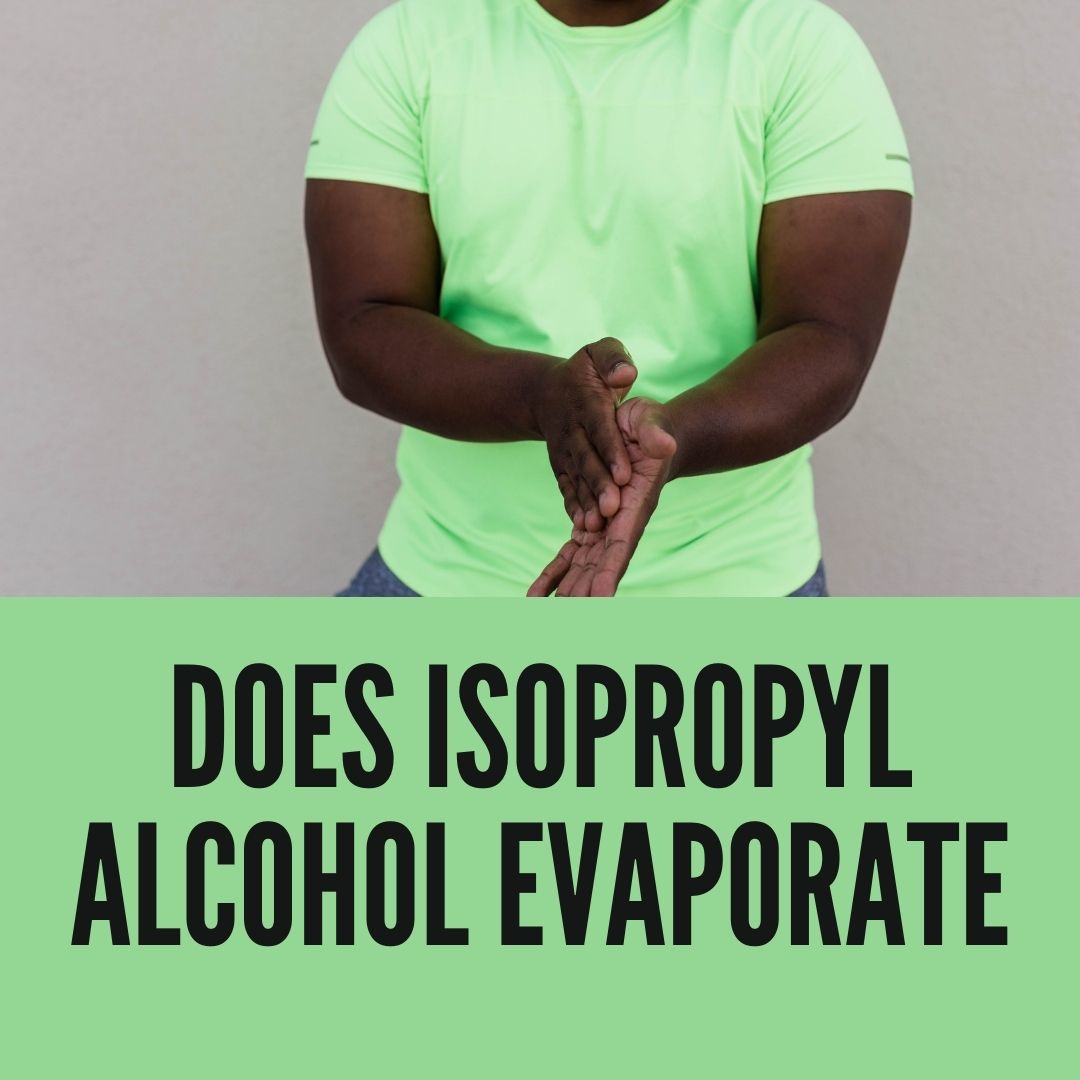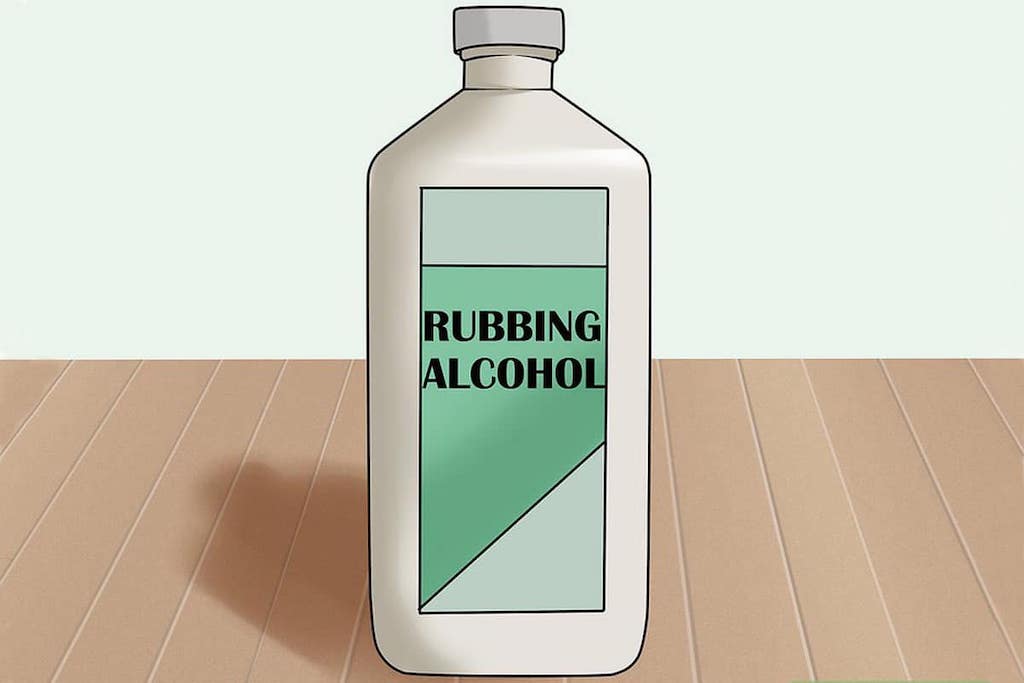
Rubbing alcohol is a convenient substance that can be used for a wide range of things, including cleaning and disinfecting a variety of surfaces, including your hands. However, I often get asked about the evaporative qualities of isopropyl alcohol.
Does isopropyl alcohol evaporate? Yes, isopropyl alcohol evaporates if it is left on a surface or if a bottle of it is left open. This is part of the reason why it makes for such an effective cleaner, and it’s also the reason why you’ll want to keep the bottle sealed whenever possible.
Of course, there’s a lot more that you’ll need to know about how isopropyl alcohol evaporates to get a full understanding of why it evaporates and why it does so at such an advanced rate.
I’m going to take a deeper dive into how isopropyl alcohol evaporates to give you a better perspective on things.

Does Isopropyl Alcohol Evaporate?
Isopropyl alcohol evaporates, and evaporation isn’t a quality that is unique to isopropyl. For example, if you’ve ever left out a shot of vodka overnight after getting a little rowdy with your friends, then you may have noticed that a large amount of the vodka evaporated while you were asleep.
However, evaporation isn’t something that is exclusively restricted to alcohol, as all liquids on Earth will evaporate under the proper conditions.
There’s a reason why things don’t stay wet forever, and that’s mainly because the water that was making them wet gradually evaporated into the atmosphere.
Of course, this doesn’t mean that you shouldn’t wipe off your countertops when they get wet, since it will still take an extended period of time for the water to dissipate into the atmosphere.
So that brings us to the case of isopropyl alcohol and why it tends to evaporate far faster than other liquids.
Before I address why isopropyl alcohol evaporates so fast, you’ll have to know a bit of science behind why liquids evaporate in the first place.
The liquid phase of matter consists of molecules that are constantly moving, whereas in the solid-state, they’re woven into a rigid matrix.
This is why you can pick up a solid block of ice and if you tried to do that with liquid water, it would just slide between your hands.
While the molecules are free to move around in a liquid state, they are still loosely linked to each other, which is what allows liquids to retain their form when put into a container.
Compare this to gas, in which the molecules are at their most free, and they have the most distance between one another.
If you open up a cylinder of compressed air (not recommended, considering how dangerous it is to do so), then the compressed air will disappear into the surrounding air.
So how does all of this relate to liquid evaporating? Due to the constant movement of liquid particles, it’s inevitable that some of them will eventually be “knocked off” of the rest of the liquid formation, and then that molecule will end up going free and becoming a gas.
Hydrogen Bonding Logic
Hydrogen bonding is the force that makes liquids want to stick to each other, and hydrogen bonding can be weakened in a few different ways.
For example, if the liquid is warm, then its molecules will start moving faster because they get excited by the heat, and this will weaken its bonds to the surrounding molecules.
This is also influenced by the amount of air that is surrounding the liquid. This is because molecules of air will impact the liquid (such as isopropyl alcohol) and they will break off molecules of it, turning it into a gas.
Keep in mind that it takes energy to break these bonds, and this energy expenditure will reduce the overall temperature of the liquid.
This is the main reason why rubbing alcohol feels cool when it is placed on your skin, as it is losing temperature as it evaporates, and to make up for that, it takes the heat from your hand.
This is also because the most likely molecules to evaporate tend to be those that are moving the fastest (i.e. have the highest temperature).
So why does isopropyl alcohol evaporate so much faster than water? It’s largely due to the strength of the hydrogen bonds in each of the substances.
While water has extremely strong hydrogen bonds between its individual molecules, those bonds are a lot weaker in isopropyl alcohol.
This is demonstrated in practice by isopropyl alcohol evaporating in a much faster time than water.
Of course, the exact amount of time that it takes either of these substances to evaporate depends on the prevailing atmospheric conditions and the temperature of the surroundings.
How Long Does it Take Isopropyl Alcohol to Evaporate?
Let’s say you’ve just used isopropyl alcohol to clean something sensitive like an electronic device or your computer components.
It’s usually a good idea to know how long you’ll have to wait for it to evaporate so you don’t turn it on and end up causing a short, potentially costing yourself thousands of dollars.
Unfortunately, there’s no clear-cut answer to this question because it depends entirely on the amount of isopropyl alcohol that you used to clean the device in question.
For example, if you used a minimal amount of rubbing alcohol, then you can expect it to evaporate within a few minutes.
If you used a larger amount of isopropyl alcohol to clean your devices, then you can expect to wait about an hour for it to evaporate so that you can safely use the device without shorting it.
Wrapping Up
Theoretically, if you were to leave a bottle of isopropyl alcohol out in the open, then you would likely see it evaporate within a period of a few days.
By then, if there’s still any liquid left in the bottle, all that will remain in the water that was mixed into the solution.

My name is Logan, and I’m a 36-year-old dad who owns a small pressure-washing company in the suburbs of Atlanta, Georgia. My main goal with rubbing-alcohol.com is to show you how versatile isopropyl rubbing alcohol can be! I hope. You find it useful.
